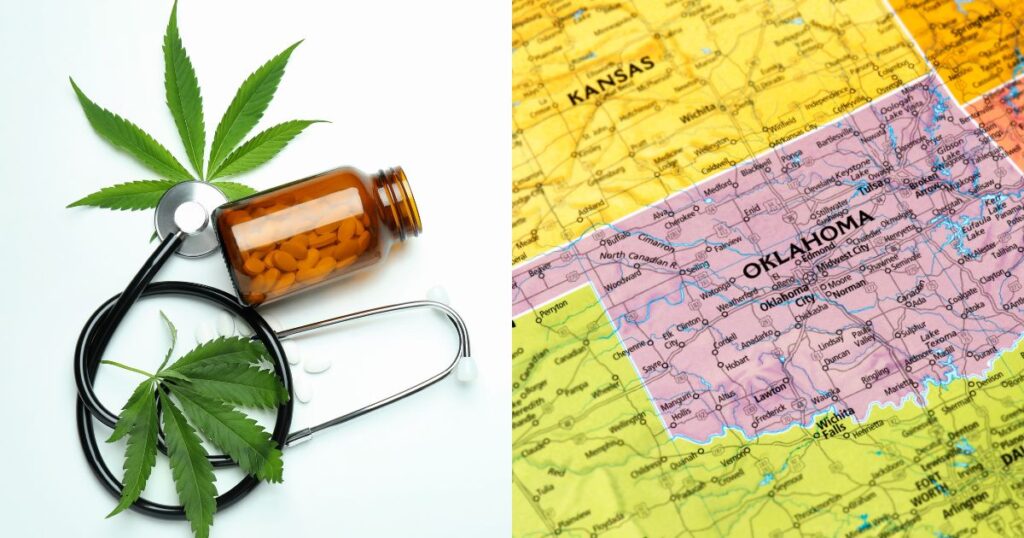The Oklahoma Legislature is gearing up for an important debate in its 2025 session as State Representative Forrest Bennett (D) has prefiled House Bill 1714. This legislation aims to protect the rights of individuals who lawfully consume cannabis, marking a step forward for workplace protections in the state. If enacted, HB 1714 would bring meaningful reforms to how cannabis use is addressed during hiring and employment, ensuring fair treatment for cannabis consumers in Oklahoma.
What is House Bill 1714?
House Bill 1714 directly addresses the hiring process and aims to prevent employment discrimination against individuals who use cannabis legally. It applies not only to Oklahoma’s medical marijuana patients but could expand protections to recreational users if the state legalizes recreational cannabis in the future. The bill covers key areas that impact both employers and job seekers.
Here’s what HB 1714 proposes:
Prevents Hiring Discrimination
Employers would be prohibited from denying a job to an applicant solely based on their lawful, off-the-clock cannabis use. Even if a drug screening reveals nonpsychoactive cannabis metabolites (compounds left in the body after cannabis use), such results cannot be used to disqualify the applicant.
Allows Drug-Free Workplace Policies
Employers would still have the right to maintain a drug-free workplace and enforce policies to ensure safety on the job. Testing for impairment or substance use in situations like post-accident investigations, suspicion of on-the-job use, or legal requirements would remain permissible.
Exemptions for Safety-Sensitive Roles
The bill contains specific exemptions for positions deemed safety-sensitive, such as those in the airline or aerospace industries, or roles requiring federal security clearance. For these jobs, cannabis consumption may remain a consideration during the hiring process.
Testing Regulations
Employers could conduct scientifically valid drug tests but would not have access to cannabis-specific test results in most cases. However, applicants for federal jobs or safety-sensitive roles could still face stricter testing requirements.
Clarification on Federal and State Laws
The bill ensures compliance with federal laws mandating certain types of drug testing for funding, licensing, or contractual obligations. Employers must meet these requirements but are restricted from using cannabis-related test results unless explicitly permitted.
If approved, this measure is set to become effective on November 1, 2025.
Why This Bill Matters
HB 1714 has the potential to set a precedent for how cannabis consumers are treated in the workplace, not just in Oklahoma but across the country. Here’s why this legislation is important:
Protecting Cannabis Consumers
Medical cannabis is legal in Oklahoma, and thousands of residents depend on it for their health and well-being. This bill acknowledges the rights of these individuals to pursue employment without discrimination.
Closing the Stigma Gap
For years, cannabis consumers have faced stigmas, even when using marijuana legally. HB 1714 eliminates unwarranted biases that affect qualified job seekers solely based on their use of cannabis during personal time.
Balancing Employer Concerns
The legislation strikes a careful balance by allowing companies to maintain workplace safety and productivity while protecting employees’ rights. Employers can still enforce zero-tolerance policies but must base them on valid impairment evidence rather than irrelevant metabolites.
Encouraging Fair Hiring Practices
By addressing outdated drug-testing policies, HB 1714 encourages businesses to adopt modern practices that reflect the realities of cannabis legalization.
Cannabis Users and Employment Rights in 2025
HB 1714 reflects the growing demand for workplace protections as cannabis legalization becomes more widespread. While Oklahoma legalized medical marijuana in 2018, this proposed bill recognizes the need for further advancements in legislation. Currently, cannabis use outside work hours can still cost qualified individuals their jobs, but HB 1714 aims to change that.
HB 1714 could significantly impact job security and opportunities for Oklahoma’s workforce. For medical marijuana patients, this bill provides reassurance, allowing them to apply for jobs without fear of discrimination due to their medication. For instance, a patient using cannabis to treat epilepsy or chronic pain would no longer need to disclose their use or worry about potential bias from employers.
In the event that Oklahoma legalizes recreational cannabis in the future, HB 1714 would already offer protections for recreational users as well. This would ensure full equity for cannabis consumers in the job market, creating a fairer hiring landscape.
Furthermore, the bill includes sensible exemptions to prioritize public safety. Roles such as airline pilots or positions requiring strict federal vetting are appropriately excluded, maintaining a balance between protecting individual rights and safeguarding societal safety.
For employers, HB 1714 encourages the modernization of drug-testing policies. It pushes for a shift toward real-time impairment testing rather than relying on outdated metabolite tests, which fail to accurately reflect an applicant’s current ability to perform their job effectively.
What Does the Future Hold?
The proposal of HB 1714 places Oklahoma among a growing number of states advocating for workers’ rights in the age of cannabis legalization. One example we’ve recently seen is firefighters in Kentucky suing for access to medical cannabis once it became legal at the start of the new year. While the bill faces the legislative process ahead, its prefiling already brings vital awareness to an issue at the intersection of workplace equality and medical freedom.
HB 1714 represents a step forward in ensuring that all individuals—medical patients and lawful consumers alike—can pursue fair employment opportunities. By standing behind this movement, we can encourage a future where stigma and discrimination no longer hold back qualified professionals.
















